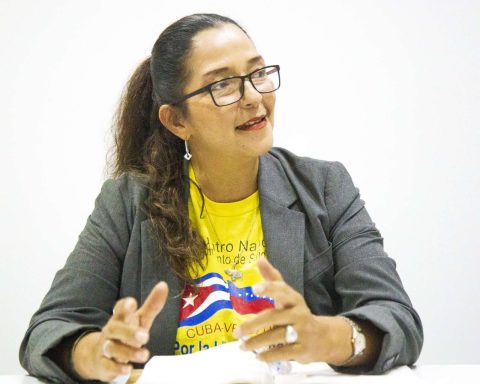Seven out of ten municipal education departments took no action or few actions to implement the teaching of Afro-Brazilian history and culture in schools, according to a survey released this Tuesday (18), in Brasília, by the Alana Institute and Geledés Institute of the Black Woman. 

In 2022, they heard from managers of 1,187 municipal education departments, which corresponds to 21% of the municipal education networks, about compliance with the Law 10.639/03which made teaching to combat racism mandatory in schools 20 years ago.
Related news:
- Blacks are 80% of those approached by the Present Security in Rio’s neighborhood.
- Tourism platform values black history and culture.
Municipalities are primarily responsible for basic education. Of the total, it was found that 29% of the secretariats have consistent and perennial actions to comply with legislation; 53% carry out sporadic activities, isolated projects or on commemorative dates, such as Black Consciousness Day (November 20); and 18% do not perform any type of action. The secretariats that do not adopt any or few actions, together, add up to 71%.
“The municipalities claim that the main challenges for implementing the law are the lack of support from other government entities and the lack of knowledge on how to apply the law. There is an indication of low engagement or resistance from professionals to this topic. We have some fronts that we can focus on to implement the law”, explains the public policy analyst at the Alana Institute, Beatriz Benedito.
For the institutes, the data show the need for political commitment for the law to be implemented, as in municipalities with structured actions, where there are, for example, local regulations, budget resources, the presence of a technical team dedicated to the topic and annual planning. of activities.
“[O resultado da pesquisa] shows that legislation, public policy is not taken seriously. It is understandable that we face a long period without investment in the area, which cannot be seen as justification. You can’t have a quality education if you don’t think about anti-racist education, a fairer society, if you don’t have an anti-racist education”, argues partner and consultant in Education in Geledés, Tânia Portella.
Thematic
According to the survey “Law 10.639/03: the role of Municipal Education Secretariats in teaching African and Afro-Brazilian history and culture”, 42% of the agencies responded that professionals have difficulty in applying teaching in curricula and projects and 33 % said they did not have enough information about the topic. As for the frequency of activities, 69% declared that most of the events take place in November, the month of Black Consciousness Day.
Most managers consider cultural diversityliterature and food as the most important topics to be addressed in the teaching of Afro-Brazilian history.
In Tânia Portella’s opinion, the themes (music, dance, cooking) are interesting to whet the students’ curiosity, but the curricular activities should not be limited to this approach.
“The participations are only in this line of approach. The black population contributed much more, in technology, in writing. This says a lot about hierarchization of knowledge and power relations”, he explains. “It is necessary to deal with an understanding of why we have a racist society, black youth are killed, black women die more in childbirth than whites. Everything is linked to having an approach at school, it needs to be problematized in schools as well”, he adds.
For consultant Beatriz Benedito, these are themes that spark dialogue and contribute to the formation of self-esteem in black children and adolescents, “which are often seen in schools only in the discipline of history, when talking about enslavement. But we also reinforce the importance of discussing power relations, the constitution of privileges, reinforcing notions in their teaching processes and school practices that allow reflection to advance”, she says.
What does Law 10.639/03 say
The law altered the guidelines and foundations of national education for the mandatory inclusion of the teaching of Afro-Brazilian history and culture in public and private primary and secondary education.
According to the text, the content must address the study of the history of Africa and Africans, the struggle of black people in Brazil, black culture and the participation of black people in the formation of Brazilian society, in the social, economic and political areas.















